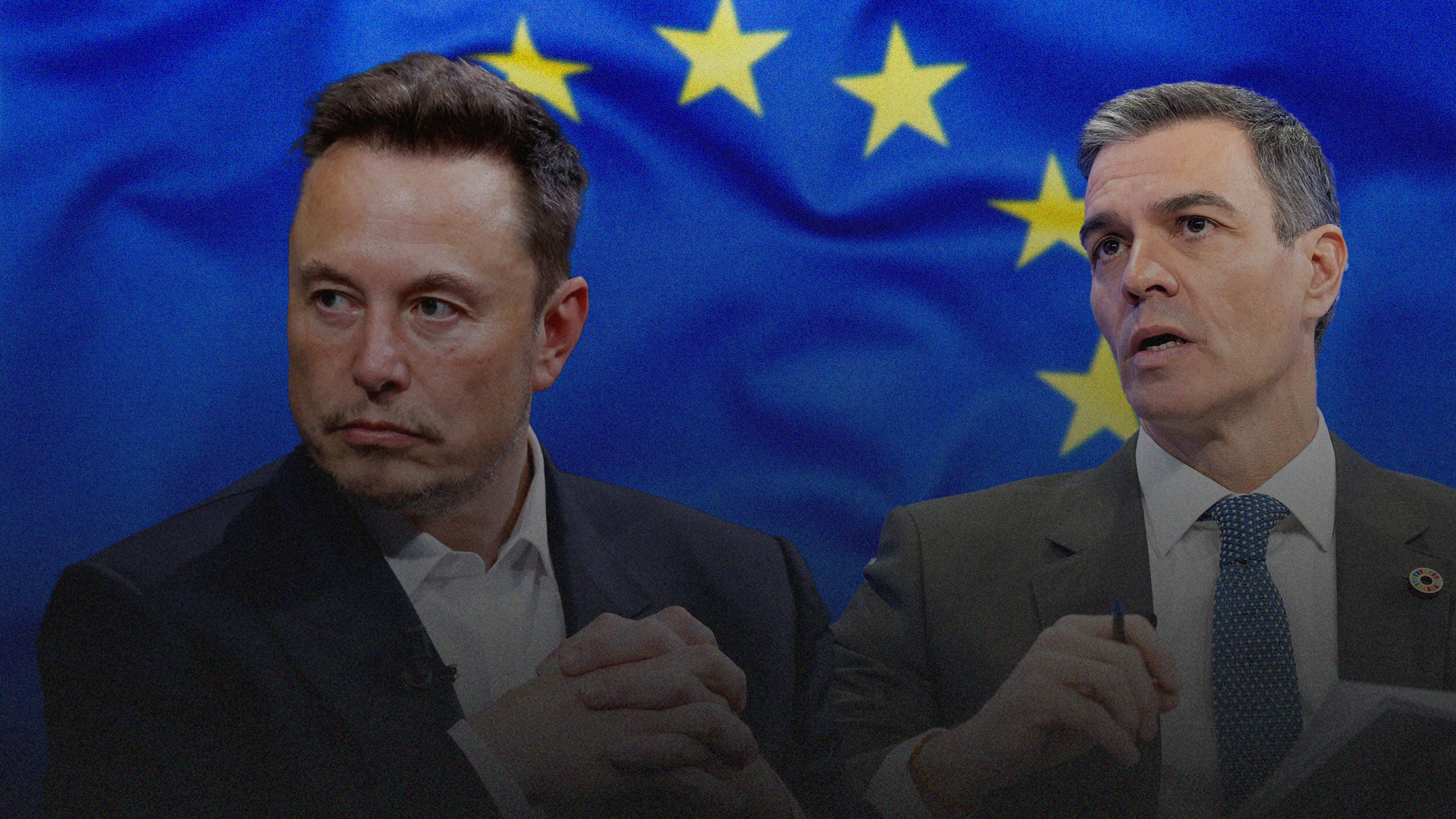Musk Derangement Syndrome Hits Europe

Pedro Sánchez, Spain’s Socialist prime minister, has become the latest European leader to voice concerns about Elon Musk’s political opinions. Speaking at the World Economic Forum in Davos, Switzerland, on January 22, Sánchez warned that tech billionaires aim to “overthrow democracy” by using their social media platforms to “divide and manipulate” society.
Earlier, in Madrid on January 8, Sánchez was more specific about the alleged threat to European democracy. He claimed that the “international far-right movement… is being led by the richest man on the planet, [and] is openly attacking our institutions, inciting hatred and openly calling for people to support the heirs of Nazism in Germany.”
Sánchez thus joined other center-left EU leaders—such as French President Emmanuel Macron (although he’s the most centrist member of this chorus) and Norway’s Social Democratic Prime Minister Jonas Gahr Støre—in criticizing Elon Musk for airing his views on X, the platform formerly called Twitter, which Musk purchased in 2022 for $44 billion. Macron accused the American billionaire of “intervening directly in elections,” while Støre expressed concern that “a man with enormous access to social media and huge economic resources involves himself so directly in the internal affairs of other countries.”
The controversy in Spain revolves around a single-word message Musk posted in response to a story originally published by La Razón newspaper on September 27, 2024. The headline reported that “91% of those convicted for rape in Catalonia are foreigners,” a statistic later confirmed by the regional authorities. Musk’s response? “Wow”—a vague reaction that barely qualifies as an opinion, let alone one capable of inciting unrest. Yet Salvador Illa, Catalonia’s Socialist President, declared, “We won’t allow anyone to use Catalonia’s name to spread hate speech,” thus imbuing Musk’s post with far more importance than it actually warrants.
Their spat did at least raise an intriguing legal question—under EU law, can an utterance such as “Wow” qualify as hate speech based on how it is interpreted by the audience? In other words, can implied meaning or context transform an ambiguous statement into hate speech?
Musk has also called Germany’s Social Democratic Chancellor Olaf Scholz a “fool” and its president, Frank Walter-Steinmeier, an “anti-democratic tyrant.” This is presumably what Sánchez refers to when accusing Musk of “openly attacking” European institutions—though his phrasing gives the impression that the pugnacious billionaire, as the “leader” of a pan-European political movement (a wildly exaggerated claim), has staged a coup, rather than expressed opinions online.
Public criticism of political leaders, even in the form of insults, is a hallmark of robust democracies. Journalists, comedians, and celebrities do it all the time, as do politicians themselves. In Spain, reasoned debate often gives way to personal attacks far harsher than Musk’s. During the 2019 election campaign, for example, Sánchez and his center-right rivals traded insults such as mentiroso compulsivo (“compulsive liar”), okupa (“squatter”), ególatra (“egotistical”), and chovinista del poder (“power-hungry chauvinist”). Politicians who engage in such discourse cannot credibly criticize Musk for calling Scholz a “fool,” or for employing divisive rhetoric.
Macron’s claim that Musk is “intervening directly” in EU elections refers to the Tesla and SpaceX CEO’s posts supporting the right-wing Alternative für Deutschland (AfD) ahead of Germany’s national vote on February 23. Musk claimed that “only the AfD can save Germany”—an opinion that centrist voters might reasonably dispute. But expressing an opinion on social media does not constitute direct election interference. If it did, celebrity endorsement would also qualify. Why, then, did the European left remain silent when stars such as Bruce Springsteen, Taylor Swift, and George Clooney supported Kamala Harris in last year’s US election?
Perhaps because those endorsements concerned domestic politics and backed the “right” cause. Billionaires and celebrities, like everyone else, are entitled to express political opinions regardless of their level of expertise. What seems to be required today, however, is that such opinions align with center-left ideology. For this reason, there was no furious backlash when the Hungarian-born American business tycoon George Soros opposed Brexit in 2016.
Musk’s actual influence, however, is debatable. Macron seems to assume Musk’s posts significantly sway electorates, but a German government spokesperson said, “We act as if Mr. Musk’s X statements could influence a country of 84 million people with untruths or half-truths or expressions of opinion, [but] this is simply not the case.” In a recent YouGov poll conducted in the UK and Germany, only a fifth of respondents believed Musk has significantly influenced national politics. The only importance his posts have is owed to the attention given to them by politicians—who are also the only people complaining about their excessive influence.
Pilar Alegría, the Spanish government’s spokesperson, has said Musk and other tech billionaires should keep their political opinions to themselves. Yet curiously, no one on the European left is proposing restrictions on American tycoons using their wealth to sway domestic elections, the concern that Støre raised in the context of EU politics about Musk’s posts on X.
In last year’s US election, Musk donated over $250 million to Donald Trump’s campaign, while megadonors such as Michael Bloomberg, Alex Soros (son of George), and Reid Hoffman reportedly enabled Harris to raise a record-breaking $1 billion. Following Trump’s victory, Musk is set to lead the newly-created Department of Government Efficiency (DOGE), and has already ousted entrepreneur and politician Vivek Ramaswamy as his co-leader. Direct intervention doesn’t get much more obvious than that.
If Sánchez, Macron, and Støre are concerned about tech moguls meddling in politics, their criticism should be directed at the system that allows individuals to buy political influence through vast financial resources—not at the fundamental right of people to express their opinions online, however uninformed or provocative those opinions may be.
The post Musk Derangement Syndrome Hits Europe was first published by the Foundation for Economic Education, and is republished here with permission. Please support their efforts.



